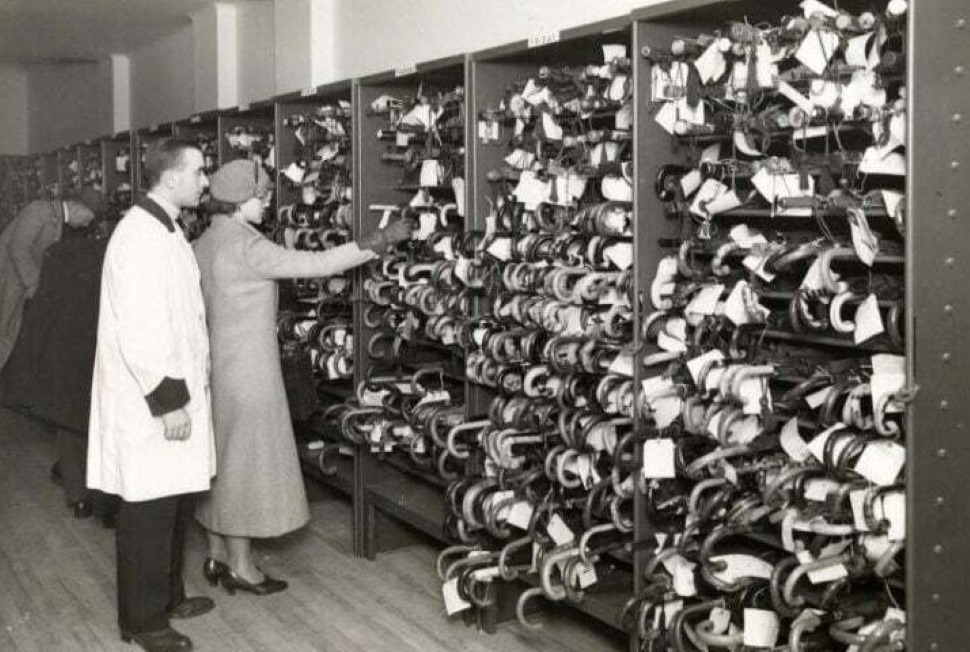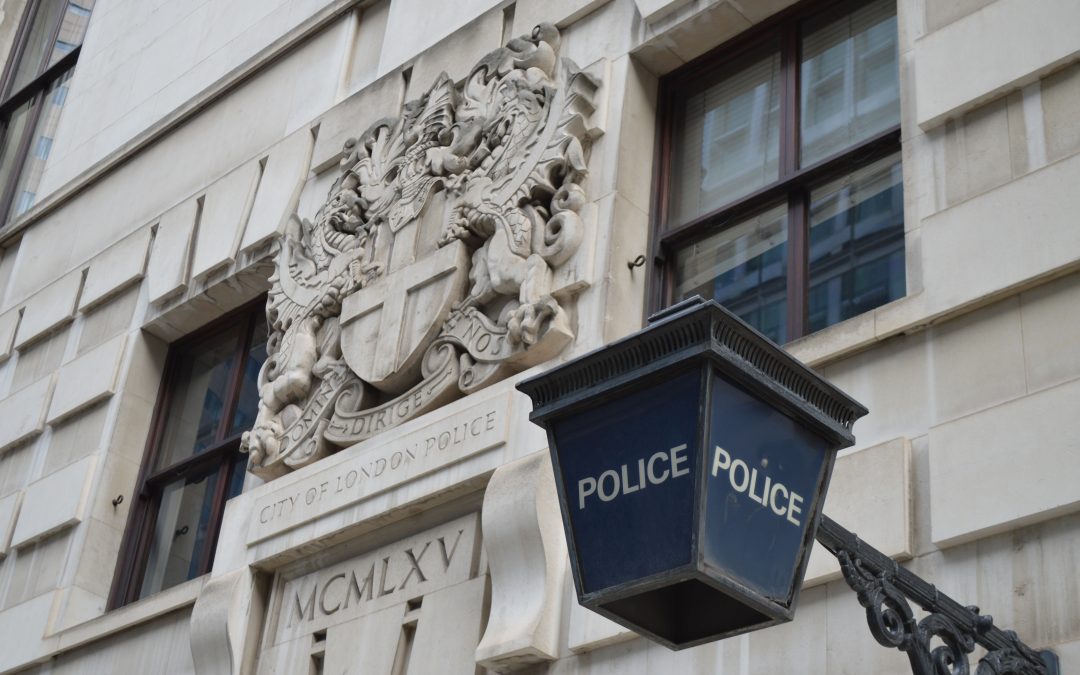Header image source: Matt Brown. Unedited (CC by 2.0)
What do the government and police say about lost property laws in the United Kingdom?
There can be confusion about what to do with lost property – as the position of the government, police, and lost property laws in England and Wales are difficult to determine.
However, businesses must still take ‘reasonable’ steps when something is found on their property. But what constitutes reasonable? Plus, what measures must these businesses take to adhere to the law?
To answer these burning questions, Notlost has compiled acomprehensive guide to lost property laws in the UK. Throughout this blog, we’ll explore the legal complexities and requirements for lost property and answer the most common questions.
A brief history of lost property laws in the UK
Do the police take lost property?
If I find something, can I keep it?
How long must you keep lost property before claiming it?
What should I do with lost property left on my premises?
How long do I need to legally keep lost property?
UK lost property law FAQ’s
A brief history of lost property laws in the UK
There’s little doubt humans have been losing things since our cave-dwelling days. However, lost property in the UK was not a common problem until the 18th century, when huge growth in consumerism and the rising use of public transport led to an epidemic of misplaced posessions.
In response, the first public LPOs (Lost Property Offices) were set up. Unfortunately, these didn’t start well and were often criminal enterprises who held missing items for ransom, using newspapers to advertise found items and claim fees for their safe return.
After a tumultuous period of confusion, The Metropolitan Police opened a ‘Central Repository for Lost Things’ in 1869. Consolidating lost property across London was seen as a pragmatic step to reduce loss rates and prise this crucial public service out of criminal hands.
This eventually moved under the remit of TFL, and in 1933, they opened a purpose-built location lost property office at 200 Baker Street to handle the ever-increasing volumes of lost property across London’s transport networks. Since then, it has moved twice, firstly to South Kensington in 2019, before moving settling in West Ham on its 90th birthday last year.

Baker Street LPO, 1933.
Do the police take lost property?
For 86 years, the police managed lost property across the UK. However, on February 1st 2019, following a national government review and consultation with 29 forces across the country, this all changed. With an eye on cost saving and efficiency, police forces across the UK stopped processing most lost property items and enquiries.
However, the police will still accept some specific items.
They will accept: firearms, ammunition and items suspected to have been involved in a crime and cash.
Furthermore, they will accept items containing personal data like identifiable wallets or personal documents.
However, they will generally not take items such as bicycles, clothing, keys, jewellery or anything unidentifiable. What local forces will accept varies from region to region, so it’s best to check before handing anything in. You can find your local police force here.

If I find something can I keep it?
This is where it gets complicated. The law states a ‘reasonable attempt’ must be made to return lost property to the owner. However, what is considered ‘reasonable’ is subjective.
If you find something, here’s what you should do:
1) Firstly, you should hand it in to the venue or transport provider where you found it.
2) Or, if you find something in a public place (and it’s not an item accepted by the police), you must make a reasonable attempt to return it. This might involve posting details on social media pages or putting a notice in a local shop or business.
If you have followed all of the above steps, the police have stated that you can then keep the property.
How long until you can claim lost property?
Some businesses operate a ‘return-to-finder’ policy, incentivising good samaritans to hand in found property. This policy means that after a period of time if an item is not claimed, ownership is returned to whoever found it.
You should check with the venue to see whether this is available and when to claim items, which can range from a month to a year. There is no legal requirement to offer this service.
What should I do with lost property found on my premises?
The law states that you must take a series of ‘reasonable’ steps to register, secure, and respond to enquiries related to that item. This could involve using a digital lost property system to capture important details. Furthermore, an online form for people to fill out and report an item as lost would be beneficial.
How long do I legally have to hold someone’s property?
Unsurprisingly, the law states to be ‘reasonable’. One month is commonplace. However, many businesses with huge volumes will only keep items for 14 or 7 days. Providing they can prove the aforementioned reasonable steps were taken, this is deemed acceptable.
Different timings for the transport industry
Despite this, the rules are different in the transport industry. Regulations state that items must be kept for at least three months. Tfl’s lost property policy is often viewed as an industry benchmark for this, and thanks to their partnership with Notlost, so is the process by which they return items to passengers.

In conclusion
For those items not accepted, ensure they are handed into local venues or posted on social media. Make sure you’re taking reasonable steps to return lost property to owners.
If you are a venue or location that handles a lot of lost property, you could benefit from Notlost’s digital lost property software. This will ensure you comply with the law and can return more lost items to owners at your organisation! Find out more about NotLost on our Solutions page and follow us on LinkedIn and Twitter to stay up to date with all things lost property.
UK Lost Property Law FAQ’s
1. What are the current lost property laws in the UK?
Lost property laws in the UK require individuals and businesses to take ‘reasonable steps’ to return found items to their rightful owners. Although the police no longer handle most lost property, exceptions exist for items such as firearms, cash, and personal documents.
2. Do the police still take lost property in the UK?
Since 2019, most UK police forces have stopped accepting general lost property. They will only take certain items, including firearms, ammunition, cash, and items containing personal data such as passports and wallets. Other posessions, such as clothing, jewellery, and bicycles, are typically not accepted.
3. If I find something in the UK, can I keep it?
You can only keep found property if you have made a reasonable attempt to return it. This may include handing it to the venue where it was found, contacting a transport provider, or posting details online. If no one claims it after these efforts, you may keep it.
4. How long must I keep lost property before I can claim it?
There is no fixed national timeframe. Some businesses offer a “return-to-finder” policy, where the finder can claim the item after 1–12 months. Transport providers like TfL require items to be kept for at least three months.
5. What should businesses do with lost property?
Businesses such as shopping centres, universities, and venues should retain lost property on their premises and log it securely. They must also make reasonable efforts to return items, which may include using a digital lost property system or an online reporting form.
6. How long do businesses need to keep lost property?
The law only requires businesses to act ‘reasonably.’ Many keep items for 7–30 days, depending on volume, while the transport industry typically holds items for at least three months.
7. Do businesses need a lost property policy?
Yes. A clear lost property policy helps businesses comply with the law, manage unclaimed items fairly, and maintain customer trust. Digital solutions, like NotLost software, streamline this process and improve the chances of reuniting items with owners.
8. What counts as a ‘reasonable attempt’ to return lost property?
Reasonable attempts may include:
-
Handing the item to the venue or transport provider
-
Posting notices online or in local shops
-
Logging the item in a lost property management system
-
Checking for identifiable details to contact the owner
9. Can transport providers set different rules for lost property?
Yes. Transport providers are subject to stricter regulations. For example, TfL must retain lost items for at least three months and follow structured processes to reunite passengers with their belongings.
